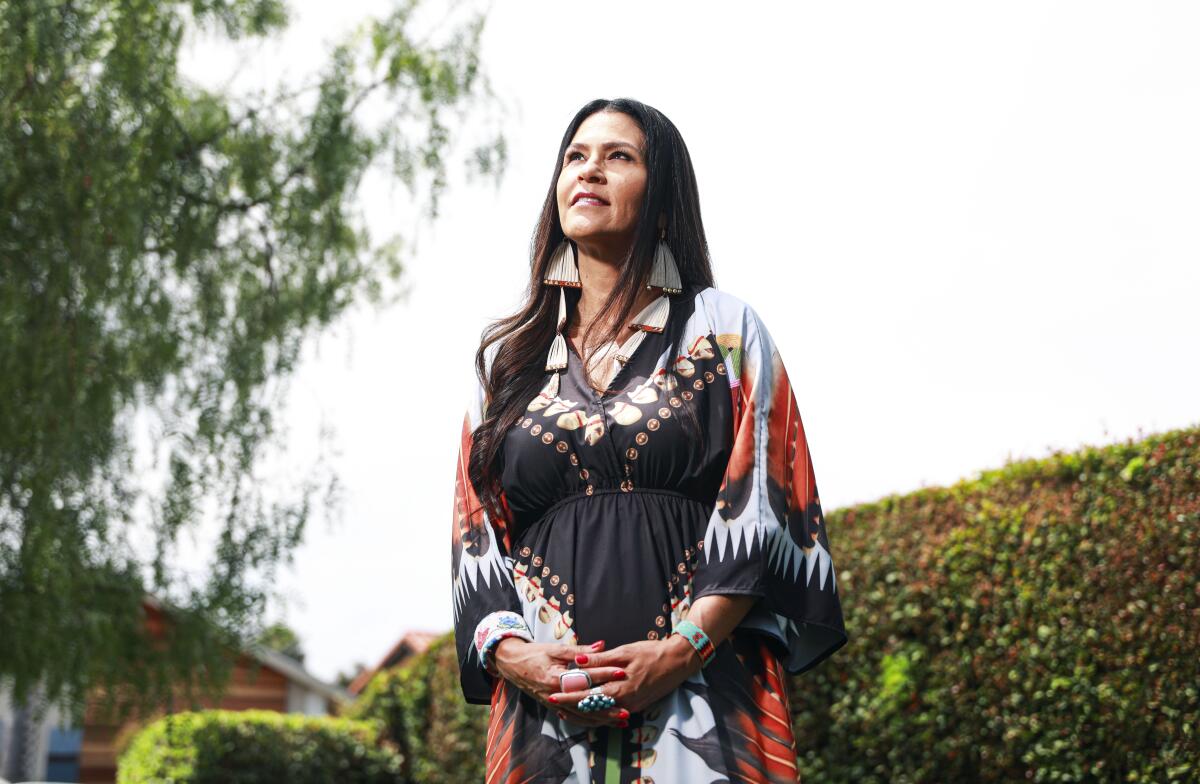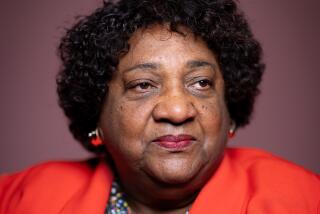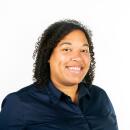Governor appoints first Indigenous woman to commission advocating for women and girls

- Share via
SAN DIEGO — Gov. Gavin Newsom has appointed Carlsbad resident and professor Joely Proudfit to the Commission on the Status of Women and Girls, making her the first Indigenous woman in the role.
Proudfit (Luiseño/Payómkawichum) is a professor at Cal State San Marcos who has served since 2008 as American Indian studies chair and director of the California Indian Culture and Sovereignty Center.
During her four-year term on the commission, Proudfit plans to support the concerns of all women and to highlight issues that affect Indigenous women and girls in particular.
Indigenous women and girls face disproportionately high rates of murder, domestic violence, sexual assault and disappearance. A 2018 report from the Urban Indian Health Institute found that murder is the third-leading cause of death for Indigenous women, and the Department of Justice reports that nearly half of Indigenous women experience sexual assault.
“I think this is the platform in which to share with the rest of the state, the rest of the 40 million people that live here, about our Native women and girls and our presence and the contributions that we make to this state,” Proudfit said, adding that she hopes she can help the commission understand the complexity of the barriers faced by Indigenous women.
The commission was launched in 1965 “to promote equality and justice for all women and girls,” in collaboration with the governor and state lawmakers, according to its website. It has 15 members — seven of whom are appointed by the governor on a rotating basis — who advocate for reproductive choice, educational and economic equity and the prevention of violence against women.
“Having Professor Proudfit ... bring in the perspective of Indigenous women and Native Americans is an incredible addition and a much-needed voice on our commission,” said Holly Martinez, the commission’s interim executive director.
The commission has programs that support women and girls on issues related to equitable pay, sexual assault victim services, access to abortion, voting equity and careers in science, technology, engineering, math and the arts. Much of the group’s upcoming work will be related to recovering from the COVID-19 pandemic and the economic recession it caused, Martinez said.
“As we look forward and move the work of the commission forward, we’re going to be really focusing on women’s and girls’ economic security and recovery, ways to champion and improve their health and wellness through programs and policy work, as well as really understanding the challenges women and girls face uniquely through the burden of both race and sex discrimination,” she said.
A study from the California Budget & Policy Center found that 54% of California women live in households that lost earnings during the pandemic; Latino and Black women were even more likely to have lost income. As of February, 11.8% of women were unemployed, compared with 10.7% of men.
Additionally, working from home during the pandemic has been more disruptive to women’s careers than to men’s, a report from the Center for the Advancement of Women at Mount Saint Mary’s University found. Women were more likely to leave the workforce during the pandemic and more likely to provide additional child care than men (41% versus 15%). Men were more likely to report feeling more productive at home where children are present (77%) than women (46%), the report found. Men were also more likely to report that working from home had a positive affect on their careers (57%) than women (29%).
Proudfit said the pandemic has highlighted some of the inequities that Indigenous communities face, especially when it comes to access to healthcare, education, employment opportunities and business development.
In addition to her work in academia, Proudfit is the founder of two companies: Naqmayam Communications, which handles public relations and liaisons between Indigenous and non-Indigenous organizations, and Native Media Strategies, which aims to improve authentic representation of Indigenous peoples in Hollywood.
Whether it’s through her service to the Commission on the Status of Women and Girls or through articles she writes highlighting film and television projects created by Native Americans, Proudfit aims to spotlight the contributions of the Indigenous community for future generations, including her 9-year-old daughter.
“Representation truly does matter, and we need to have role models, we need to be seen and heard, and people need to understand that Native women are part of the tapestry that is America,” Proudfit said.
More to Read
Sign up for Essential California
The most important California stories and recommendations in your inbox every morning.
You may occasionally receive promotional content from the Los Angeles Times.











